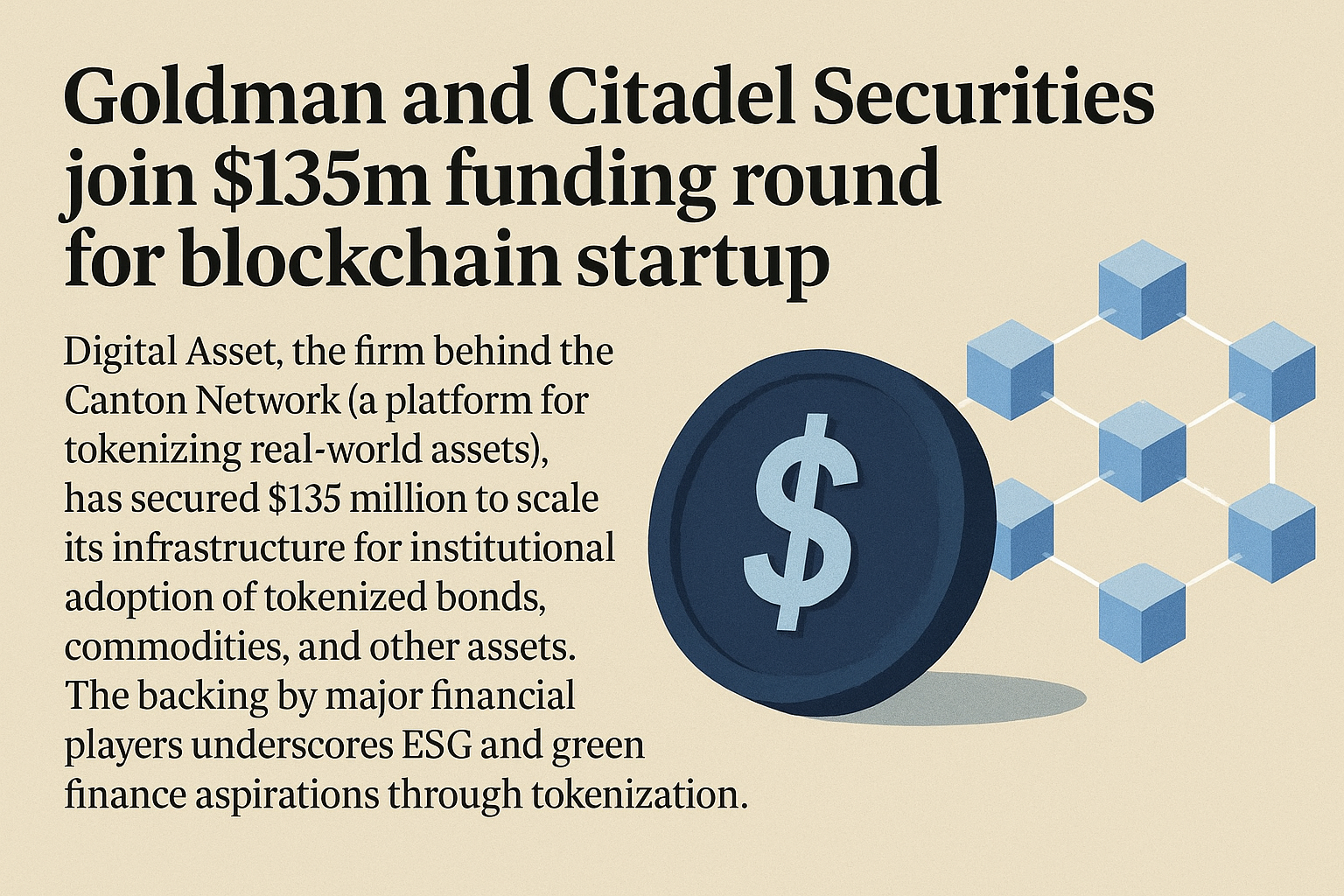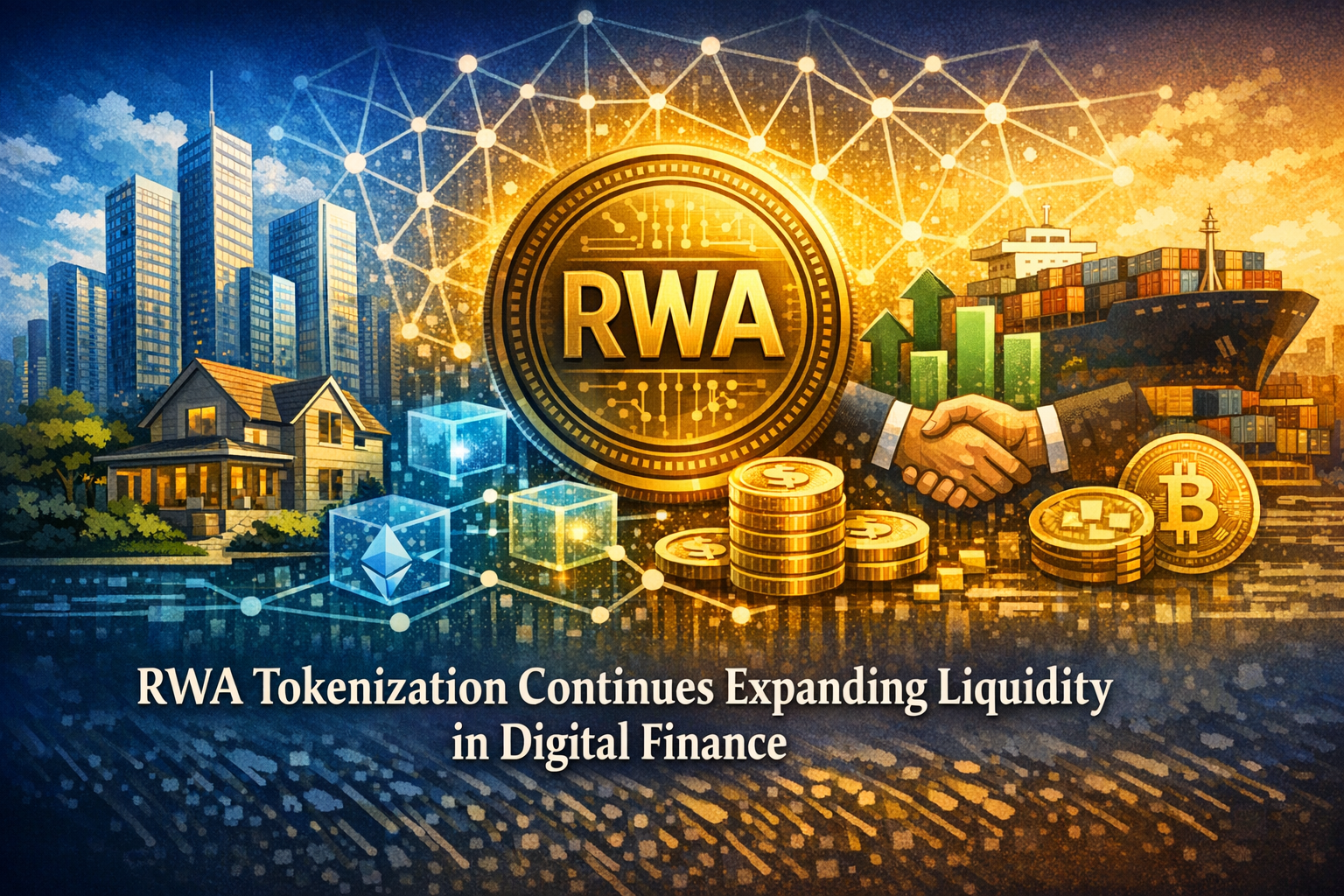In a landmark move that signals growing institutional confidence in blockchain-based finance, Goldman Sachs and Citadel Securities have joined a $135 million funding round for Digital Asset, the New York–based firm behind the Canton Network — a privacy-enabled interoperable blockchain designed for financial institutions.
The funding round underscores the accelerating convergence between traditional finance (TradFi) and decentralized technologies, with Digital Asset emerging as a key enabler of the next generation of financial infrastructure. This investment is not merely a show of faith in blockchain technology, but a strategic commitment to reimagining how real-world assets (RWAs) — such as bonds, commodities, carbon credits, and other securities — can be digitized, traded, and settled with unprecedented efficiency.
Tokenization: The Next Wave of Market Infrastructure
The concept of tokenization — representing ownership of real-world assets as blockchain-based tokens — has moved from theory to practice over the last few years. Financial institutions are increasingly exploring the model as a way to streamline settlement, reduce counterparty risks, and expand liquidity access across markets that were once fragmented and opaque.
Digital Asset’s Canton Network aims to be the connective tissue of this transformation. It provides a privacy-preserving, interoperable layer that allows financial institutions to issue and trade tokenized instruments without sacrificing regulatory compliance or data confidentiality — two of the biggest hurdles for institutional blockchain adoption.
This interoperability is key: banks, asset managers, and trading firms can transact across multiple applications while maintaining control over data, compliance, and permissions. The Canton Network is designed to bridge existing financial systems with decentralized infrastructure, creating a “network of networks” effect that could finally make blockchain viable at institutional scale.
Why Goldman and Citadel’s Backing Matters
Goldman Sachs has long been exploring blockchain’s potential through initiatives like its Digital Asset Platform and tokenized bond experiments. Citadel Securities, one of the world’s largest market makers, adds a layer of high-frequency trading expertise and liquidity infrastructure to the mix.
Their participation in this funding round sends a strong signal to the market: blockchain is no longer experimental — it’s becoming foundational. When two of the world’s most sophisticated financial players invest in blockchain infrastructure, it validates the shift from speculative crypto projects to institutional-grade tokenization and settlement networks.
This development follows a broader institutional trend, where traditional financial heavyweights — including BlackRock, JPMorgan, and the London Stock Exchange Group — are building or investing in tokenization frameworks for real-world assets (RWAs). Analysts increasingly view this as the “second phase” of blockchain adoption, where compliance, capital efficiency, and interoperability take center stage over speculation.
The ESG and Green Finance Dimension
Interestingly, the funding announcement also emphasizes ESG (Environmental, Social, and Governance) alignment. Tokenization can enhance transparency in green finance — allowing investors to track the provenance and performance of assets like carbon credits, renewable energy bonds, and sustainability-linked loans in real time.
Digital Asset’s infrastructure could thus become a backbone for a verifiable, auditable green finance ecosystem, aligning investor goals with global sustainability commitments. For institutional investors increasingly bound by ESG mandates, this is not a side benefit — it’s a crucial evolution.




